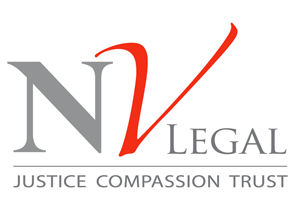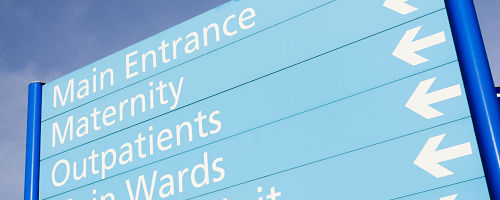Maternity failings uncovered in report
If a hospital trust had provided better care, hundreds of babies could have survived according to a report unveiled last week.
The Ockenden Report uncovered failings at the Shrewsbury and Telford Hospital NHS Trust and the review has now provided recommendations for all maternity trusts in England.
WHAT IS THE OCKENDEN REPORT?
It is an Independent Review of maternity services at The Shrewsbury and Telford Hospital NHS Trust. Led by Donna Ockenden.
Examining cases involving 1,486 families between 2000 and 2019. Reviewing 1,592 clinical incidents where families consented to their medical records.
The review team spoke to the families about their care and examined medical records.
Current and former members of staff provided evidence. This included surveys and confidential interviews. The review team also scrutinised documentation provided by the Trust.
WHAT DID IT FIND?
The trust made repeated failures in the quality of care and governance. As well as failures from external bodies to check the care provided.
It said that 201 babies could have survived if the trust had provided better care and found that the Trust had failed to undertake serious incident investigations.
The trust did not examine cases of death appropriately. Where investigations did take place, they did not meet the expected standards. Failing to identify areas for improvement in care.
DONNA OCKENDEN
Speaking at the launch of the review, Donna Ockenden said: “Throughout our final report we have highlighted how failures in care were repeated from one incident to the next. For example, ineffective monitoring of fetal growth and a culture of reluctance to perform caesarean sections resulted in many babies dying during birth or shortly after their birth.
“In many cases, mother and babies were left with life-long conditions as a result of their care and treatment.
“The reasons for these failures are clear. There were not enough staff, there was a lack of ongoing training, there was a lack of effective investigation and governance at the Trust and a culture of not listening to the families involved.
“There was a tendency of the Trust to blame mothers for their poor outcomes, in some cases even for their own deaths.
“What is astounding is that for more than two decades these issues have not been challenged internally and the Trust was not held to account by external bodies.
“This highlights that systemic change is needed locally, and nationally, to ensure that care provided to families is always professional and compassionate, and that teams from ward to board are aware of and accountable for the values and standards that they should be upholding.
“Going forward, there can be no excuses, Trust boards must be held accountable for the maternity care they provide. To do this, they must understand the complexities of maternity care and they must receive the funding they require.”
WHAT’S NEXT?
Following the review, the team identified 60 actions that Shrewsbury and Telford Trust must install.
It also identified 15 immediate and essential actions which all trusts in England, providing maternity services, must put into place.
- Financing a safe maternity workforce
- Essential action on training
- Maintaining a clear escalation and mitigation policy when the Trust does not meet agreed staffing levels
- Essential roles for Trust Boards in oversight of their maternity services
- Meaningful incident investigations with family and staff engagement and practice changes introduced in a timely manner
- There must be mandatory joint learning across all care settings when a mother dies
- Care of mothers with complex and multiple pregnancies
- Ensuring the Trust introduces at pace, recommendations from the 2019 Neonatal Critical Care Review
- Improving postnatal care for the unwell mother
- Care of bereaved families
INVESTMENT
NHS England must also invest in a recruitment and retention drive. To reduce pressures on understaffed maternity services.
There needs to be more investment in training for midwives, support staff, and doctors. As well as actions to ensure midwives and their medical colleagues want to remain working in the NHS.
Peter Walsh is chief executive at Action against Medical Accidents (AvMA), a charity for patient safety and justice.
He welcomes the Ockenden Report but wants to see more action.
He said: “The recommendations from the Ockenden Inquiry, including the interim recommendations, must be implemented in full and rapidly.
“In particular, the calls for extra resources, echoed by the Health and Social Care Committee, must be met. There should be a formal committee established with the specific remit to monitor the implementation of recommendations from inquiries which have been accepted and call Government and the NHS to account if they are not being implemented properly.
“There must also be accountability for senior managers responsible for awful scandals like this. There should be regulation of senior managers similar to arrangements in place for doctors and nurses, so that they can be struck off a register and prevented from taking on similar roles.
“Women and families who experience problems with maternity services must be listened to and empowered both before harm is caused to mother or baby or after harm has been caused. It is heart-breaking that women and families are left to fend for themselves.”
SUPPORT AVAILABLE
Several charities offer support to women affected by these issues. Some of these include:
https://www.birthtraumaassociation.org.uk/
https://www.mums-aid.org/information-and-support/useful-links/
NV LEGAL
Our solicitors have experience in clinical negligence cases. Dealing with claims for birth injuries to mothers and babies.
If your child sustained a birth injury you have until they are 18 years old to begin a claim for clinical negligence. After they turn 18 you have a further three years to claim. There are exceptions.
If you a claiming for an injury for yourself, you have three years from the time the injury took place.
Our solicitors provide free initial consultations to discuss your case. The Solicitors Regulation Authority regulates our solicitors. Any advice given is from qualified solicitors.
Contact us today:
Call – 03330 112732
Email – info@nvlegal.co.uk
Website – www.nvlegal.co.uk


